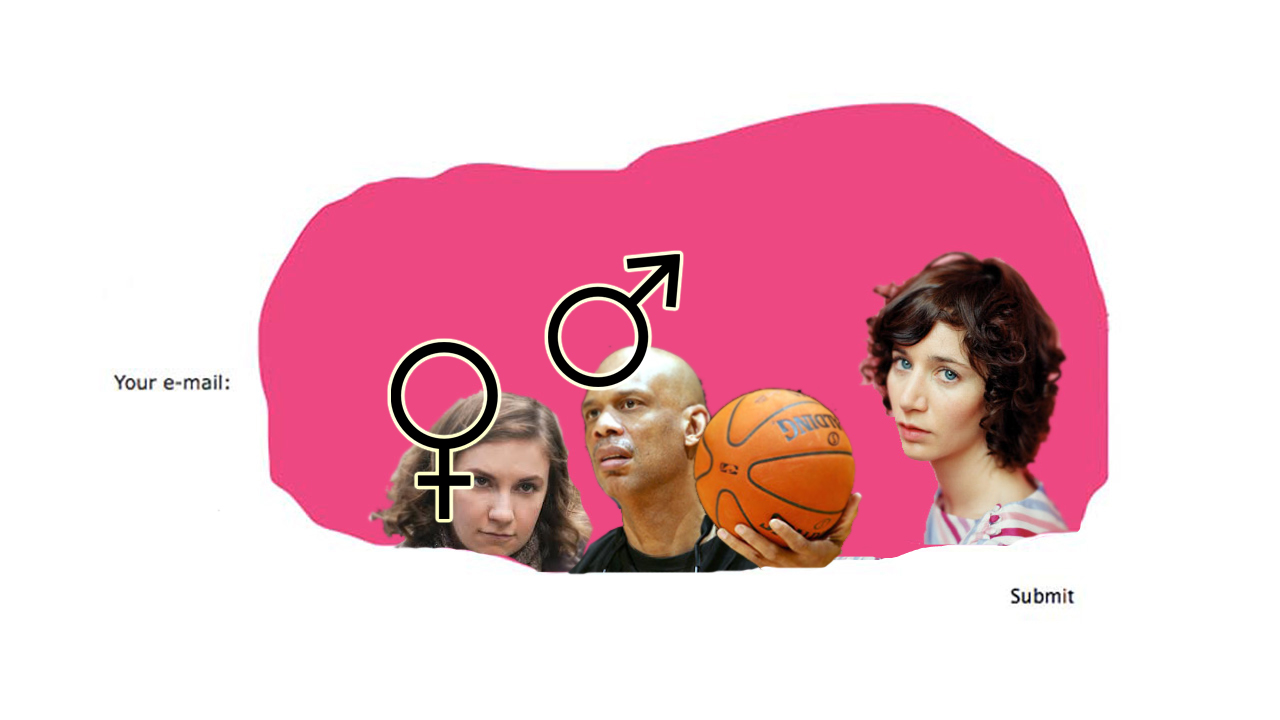Miranda July’s 20-Monday-long We Think Alone project continues with another private email blast from Lena Dunham, Kirsten Dunst, writers, artists and her other friends. Last week’s topic was money. Today’s topic is advice and it seems rather… gendered.
Sheila Heti and Lena Dunham both give their friends advice about relationships that seem to not be going well. Heti’s friend seems to be confused as to whether or not she should break up with her boyfriend or not. Heti’s advice includes wisdom she learned from an older woman, “She told me that I was young. That there was enough time in my life for everything; being alone, being with women, with difficult men, with not-difficult men. This was soothing. There’s enough time in my life for everything.”
Heti also speaks of the necessity of loving someone’s flaws, of not looking for a partner to complete yourself, of not trying to stick with a man out of some idea that loyalty to a bad situation will make oneself a better person. It’s the kind of conversations many women find familiar — trying to convince their friends that losing their bad or just “not quite right” boyfriend isn’t the end of the world, that they shouldn’t seek validation in a romantic relationship.
Meanwhile, Dunham encourages her friend to not return to a “not nice” boyfriend, because “he isn’t kind or careful with you, he wants to suck the kindness out of you, and if he’s like this after 10 years of group therapy then G-d help us all.” Heti and Dunham’s emails seem in stark contrast to the other emails. All the other ones are sent by men, except one.
Lee Smolin gives career advice about becoming a popular science writer — don’t do it because it’s very hard work and time consuming unless you want to become a science publicist or “you have an new and disturbing idea you need to think through in your research and need the challenge of explaining it to a wider public to focus on it.”
Kareem Abdul Jabbar encourages a young fan who wants to become a professional basketball player to focus on his studies.
Etgar Keret gives advice on how to become a professional writer — “I think that with film adaptations one can be active and either write a screenplay or pitch the ideas to film makers both through an agent or directly.”
What strikes me about the emails is their gendered nature. The ones sent by men this week mostly focus on career advice and, briefly, politics (Danh Vo). The ones sent by women focus on romantic relationships and, briefly, family life (Catherine Opie). These characteristics seem to fall into areas of life traditionally defined “female” or “male,” each in accordance to the sender’s gender.
This isn’t a value judgment, merely an observation.


